Spoiler warning: this piece explores some powerful moments in Grand Theft Hamlet that you might want to discover for yourself.
Someone clever once referred to The Anatomy of Melancholy as a novel in which all the characters are books. If that’s true, then maybe you could argue that Grand Theft Hamlet is often a movie in which a lot of the characters are famous lines.
Grand Theft Hamlet is a documentary about an attempt to stage Hamlet inside GTA Online. During the pandemic lockdown, Sam and Mark, two bored and out-of-work theatre people, find themselves playing a lot of GTA Online together. Actually, due to that peculiar cocktail of lockdown experiences, Sam and Mark seem simultaneously bored and depressed and on edge. In other words, they’re perfectly primed to do something inadvisable.
One morning, running from the cops, they stumble across the Vinewood Bowl – a huge empty stage with nothing happening on it. They quickly decide that they’re going to put on a play – and not just any play. Hamlet seems like the perfect fit for Rockstar’s world. As Sam suggests, Shakespeare’s “fucking brutal”, and by the end of this particular play almost everyone’s dead. Sam’s partner Pinny is a documentary film-maker and quickly comes in to document what happens next. For the rest of the film, we watch as the team gathers actors, rehearses, often under heavy fire from passing players, and eventually tries to stage all five acts of Hamlet.
But those famous lines! Staging Hamlet in GTA means that every so often you get to hear a really lovely familiar bit of Shakespeare ringing out inside Los Santos. “To be…” gets an outing, obvs, but so does “Frighted with false fire,” a favourite bit of Shakey alliteration that has been rolling around in my head for thirty odd years at this point. But then you get a deep cut. “Who would fardels bear?” I hear that soft-play of a sentence and I’m suddenly back doing my A-levels and we’re all laughing about fardels. To think of it! I have not laughed about fardels in decades.
Anyway. I finally looked fardels up, so that’s one thing going for Grand Theft Hamlet (they’re bundles or collections, which is a bit disappointing really). What’s interesting, though, is that this line, which barrels out of history towards us trailing clouds of comedy, is located so close to “To be or not to be?” Same speech. It’s like finding that someone built a clown college around the corner from the Chrysler Building. Out the door, turn left at the mixed metaphor and get ready to pick up your tiny bicycle.
This is a stupid aside, granted, but if you love Shakespeare, Grand Theft Hamlet is absolutely full of stupid asides. Watching Sam and Mark and Pinny trying to put a show on in a violent virtual playground makes Hamlet a little bit new again – or rather it allows you to approach something you think you know very well from a fresh angle.
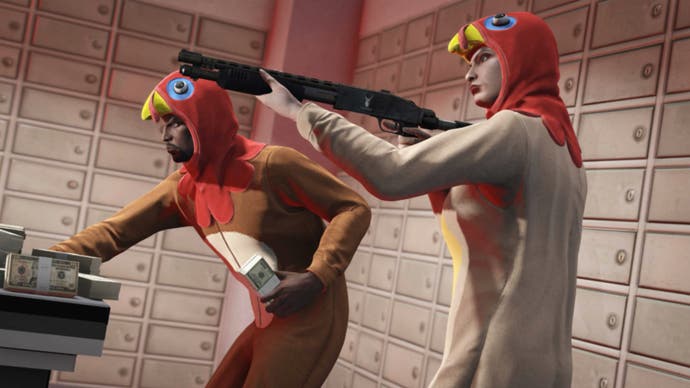
And that sense of newness is not limited to Shakespeare. On a certain level, Grand Theft Hamlet is a knockabout comedy, but it’s one that’s filled with arrestingly unexpected moments. Pinny’s first arrival in the world of GTA Online has stuck with me since I first watched the film. She and Mark are driving through familiar Los Santos streets back to Mark’s apartment and she suddenly says, “It’s like going on holiday without going on holiday.” And then: “It’s like starting a relationship with you again.”
A few weeks back I got to interview Pinny Grylls and her partner Sam Crane about their film, and I asked them about this moment. They’re off to Sam’s apartment, which has a certain ‘early dates’ feel to it, certainly, but I wondered whether Grylls was responding to something more, something about the strange ability of digital spaces to make things feel unexpected and distinct again.
“I mean, when I first jumped into that game, it was mind blowing,” Grylls says. “I didn’t know anything about online gaming, I was completely new to it, and I was very judgmental of people who went into these worlds. And I thought, gosh, you know, they’re probably so strange, what kind of relationships they have.”
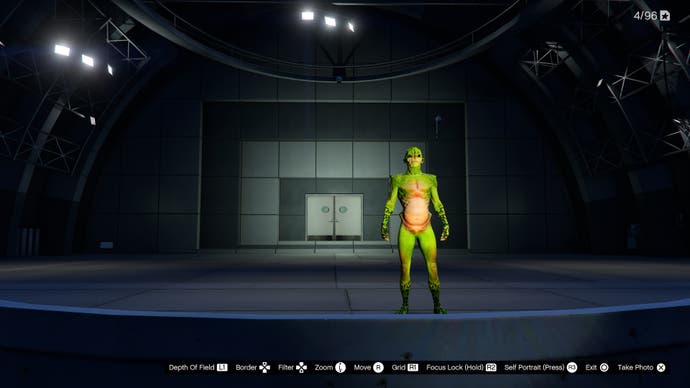
And yet? “I felt it was thrilling,” she says. “It was quite a difficult time in history, wasn’t it? We were all feeling pretty depressed. We were probably spending too much time together because we were locked in. And so when we went into the game together, it was like – because we’re now in our mid-40s, so we’ve been together a long, long time – it really felt like I was 19 again. It felt very young. And I had fun.”
On the subject of fun: if you’re going to stage a play inside GTA Online – and you should! – Grand Theft Hamlet is a reminder that you’re regularly going to run up against the fact that you’re inside GTA Online. The game is everywhere in the film Grylls and Crane have made. A gunfight breaks out while Sam and Mark are trying to film a recruitment video. A crucial rehearsal features an actor falling off the stage at the worst possible moment (it’s the moment when the stage in question is a blimp). Over time, a found-family starts to emerge including people who are crucial for the running of the production even if they don’t act: one brilliant character ends up manning an attack jet and circling the area where the actors are performing, blasting away at annoying troublemakers. And even the quietest scenes in the game have a little ticker-tape of deaths and destruction popping up in the lower-left corner.
I ask Crane how he ended up viewing the production’s relationship with the game. Was GTA a stage set, or was it a collaborator, or even a nuisance, one of those seas you want to take up arms against?
“It’s a live setting,” he laughs. “And I think it is a live setting because of the great potential for chaos that’s in there. You’re genuinely co-present in this space with other people at the same time. This constant chaos and potential for things to collapse and just go completely haywire is what makes drama, right?”
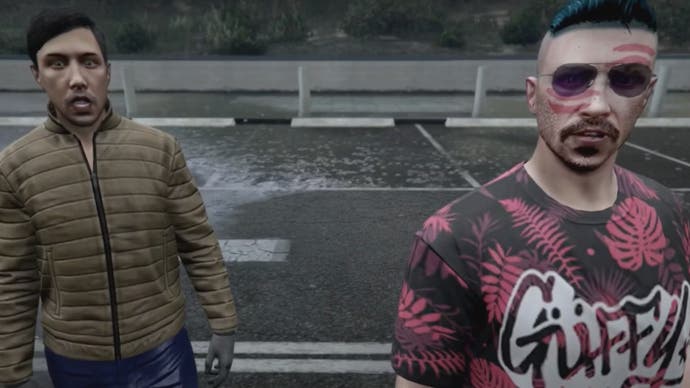
He means this. Crane sees the temperamental environment of GTA Online as crucial to the success of the play. He sees a sense of potential disaster as being a crucial component of theatre in general. “Without that [stuff] you don’t have drama,” he says. “Even in the most ordered West End production, when you’re watching it, there is some feeling like, subconsciously, I am in a live space here, anything could happen. If I wanted, if I’m sitting in the audience, I could run up onto the stage.” He laughs again. “Of course, I’m not going to, because of the etiquette, but you know, somewhere inside you know you could, and that’s what makes it exciting.”
It’s this same tension that thrilled Grylls. “That’s why it’s so exciting to make a documentary about it,” she says. “Because documentary is about responding to real things that are happening, and then the creative treatment of reality in the edit and trying to say: Okay, what happened in reality? And then how can we tell a story about what happened? And what did we learn from it?” She looks towards Crane. There they are, the actor and the documentary film-maker. “I felt we suddenly understood each other’s passions, and that they were actually quite similar.”
One of the things I’ve always wondered about theatre is how actors and directors feel about the fleeting nature of it all. You make something brilliant, and once it’s been performed, it’s pretty much disappeared. It’s in the ether. You had to be there. When I ask Crane and Grylls about this, Crane’s answer touches on a debate that’s currently going on within theatre circles about the number of plays being recorded and screened. And then Grylls mentions a version of The Seagull performed by Celine Song in The Sims in 2020.

So are there other people doing this sort of thing? Yes and no. The Sims is a game, but it’s not a live service game. It comes with light movie making tools and with none of the randomness of GTA Online. Grand Theft Hamlet didn’t play out in a modded version of the game, and while the play was streamed on Twitch, it had a live audience too, one that had to follow the actors around San Andreas, and survive an unfortunate moment where – actually, best not to spoil that one. “There was jeopardy,” Grylls says. “And I think that makes it so interesting.”
Another thing I find fascinating about this particular version of Hamlet is that, while it takes place inside a deeply recognisable virtual space, everyone acting – and everyone watching – still had to use their imagination to bring Shakespeare’s world into being. The play unfolds across parts of a modern Californian city, and to turn it into medieval Denmark requires the kinds of things you relied on when you were a kid putting on a play in the garden, and pretending this tree stump, say, is a castle. (Just me?)
And the game itself only complicated that. “There’s definitely interesting kinds of challenges, things that you’re not able to do, that you have to think of creative solutions to get round,” says Crane. A crucial scene in Hamlet comes when Polonius, a courtier and spy for the king, is stabbed through a tapestry by Hamlet. “It’s a very interior scene,” Crane says. “It’s inside the closet, right? It’s inside Gertrude’s bedroom.” Finding a location to perform this was doubly tricky because it was crucial that the actor playing Hamlet could shoot and kill the actor playing Polonius. But when you’re inside a building in GTA Online, you can’t use your weapon.
“So anyway, shit, what do we do?” Crane continues. The solution was an external area with the feel of an interior location: the grotto in the grounds of the Playboy Mansion. Polonius is behind the arras and Hamlet kills him. It works perfectly.
A couple of things have really stayed with me about this version of Hamlet. One of them is the performances. Yes, they’re delivered via the character models and emote animations of a game that’s almost a decade old, but they’re absolutely thrilling. Even the auditions are thrilling. Parteb, a character who spends a lot of the film up in that attack jet making sure the action on stage flows without interruption, recites part of the Quran and it’s electrifying. An actor who briefly has the role of Hamlet – before he needs to drop out, announced in a scene that’s both deeply moving and brilliantly comic – has everyone watching in total silence, purely through the way he handles the text.
Crane was dazzled too. “Through the [actors] doing their speech and through them manipulating their avatars, you see something of themselves as well, their own characters,” he says. “And there’s so much individuality and story coming through that, which is what was so mind blowing to me.”
Another thing that’s stayed with me is the film’s balance between these two titans of culture. You know, William Shakespeare and Grand Theft Auto. Both come through clearly in the film, and both express themselves in their own ways. Shakespeare has that glorious vocabulary and pace, the iambs driving famous thoughts into your head in a way that always feels new: O, what a rogue and peasant slave am I! But Grylls cuts this in against Los Santos often captured at that boozy, bloomy point in the evening where the sky is purple and the stars are becoming sharp. She lingers on mountains and desert roads, on the hills of GTA’s ersatz Mullholland, on the beaches at dawn. GTA’s personality emerges just as clearly as Shakespeare’s. Its presence is just as distinct and astonishing.
But there’s something else in this film – something that elevates Grand Theft Hamlet in every way. Early on, in-game Pinny asks in-game Mark how he’s doing. He’s been to a funeral and he mentions that he’s just lost his last blood relative. I gasped while watching, even though I was entirely alone at the time. The film picks up this thread and manages to take a larky story about putting on a play and use it to tell a story about people and isolation and the pandemic, but also about the power of art to create a community in the least likely of places. Grand Theft Hamlet’s about Shakespeare and about GTA, but really it’s about this vital human stuff.
“[At screenings,] I’ve actually asked the audience,” Grylls says. “I’ve said, okay, how many people came here because they’re gamers? How many people came here because they’re Shakespeare fans? And then I say, how many people came here because they didn’t know what the hell they were going to see? And most of them put their hands up. In fact, everyone puts their hands up in that one.
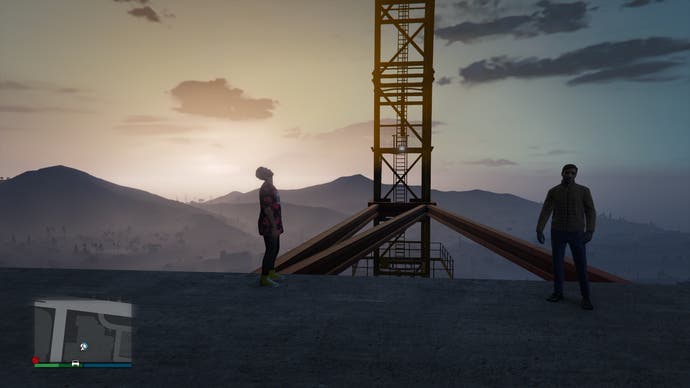
“And I think that’s the thing: people don’t know what they’re going to watch, which is actually to our advantage, because at first I think we just want to win them round by saying, this is going to be fun. You’re going to enjoy yourself. It’s going to be fun. And then we swerve into a different zone.
“This film is not just about having fun,” Gyrlls continues. “It’s about people’s lives. It’s real things that people can relate to. Because everything else is so weird, everything else is so new in the film, I feel like that needs to be real.”
In turn, all of that sounds kind of… Shakespearian?
“I think it’s interesting,” Crane says. “For this film, it’s all shot inside this game, but there’s bits of the real world that kind of seep in through it. And we really wanted that, to allow that to happen. There’s all these different layers of reality, of what the story of Hamlet is about. There’s medieval Denmark through the lens of Shakespeare telling the story in Shakespearian England. And then we’re inside this game that was actually made in 2013 originally. And it’s sort of set in America…”
“And it’s made in Scotland,” Grylls adds.
“And then we’re playing it in England in 2021,” Crane says. “In the sort of aftermath of this terrible pandemic. So there’s all these kind of different layers, and we wanted them all to kind of fuse together, but for all those different realities to be present.”
“And Hamlet’s about that, right?” Grylls concludes. “I mean, Hamlet’s about people wearing masks, people not being what they seem.” A final pause. “It’s the play within the play.”
Grand Theft Hamlet is out in UK cinemas on 6th December.
fbq('init', '560747571485047');
fbq('track', 'PageView'); window.facebookPixelsDone = true;
window.dispatchEvent(new Event('BrockmanFacebookPixelsEnabled')); }
window.addEventListener('BrockmanTargetingCookiesAllowed', appendFacebookPixels);
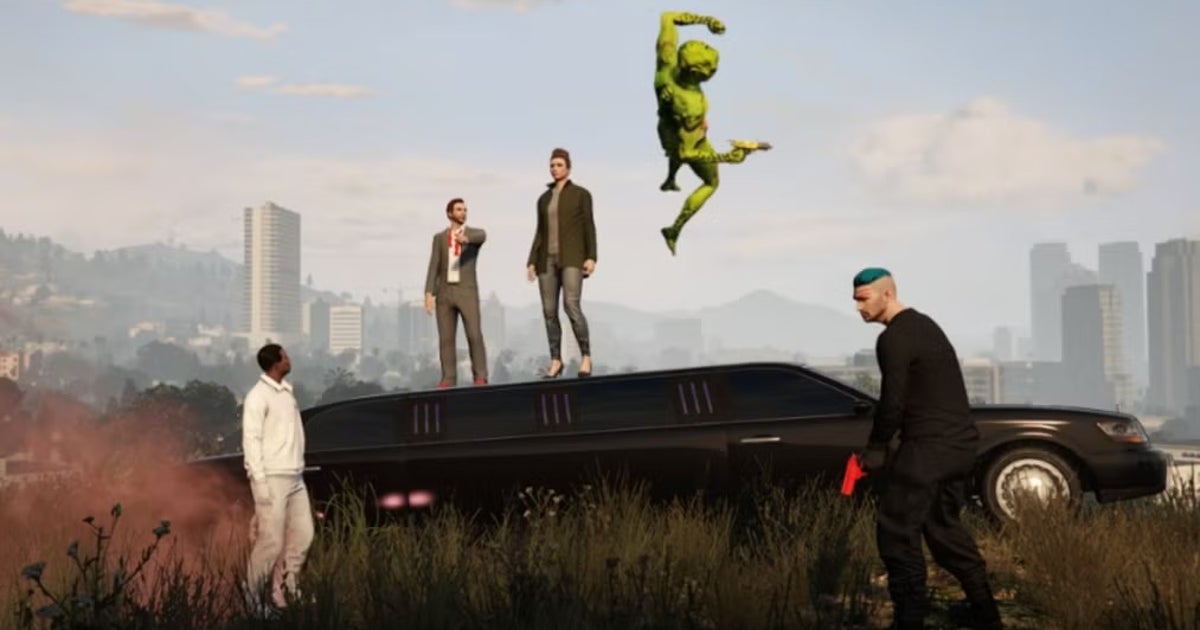



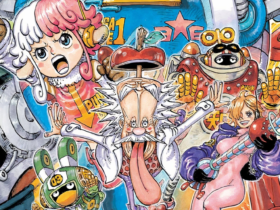





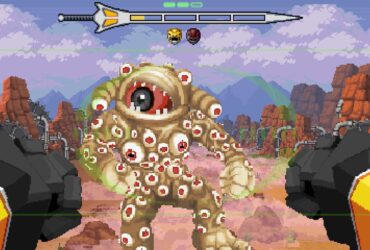

Leave a Reply